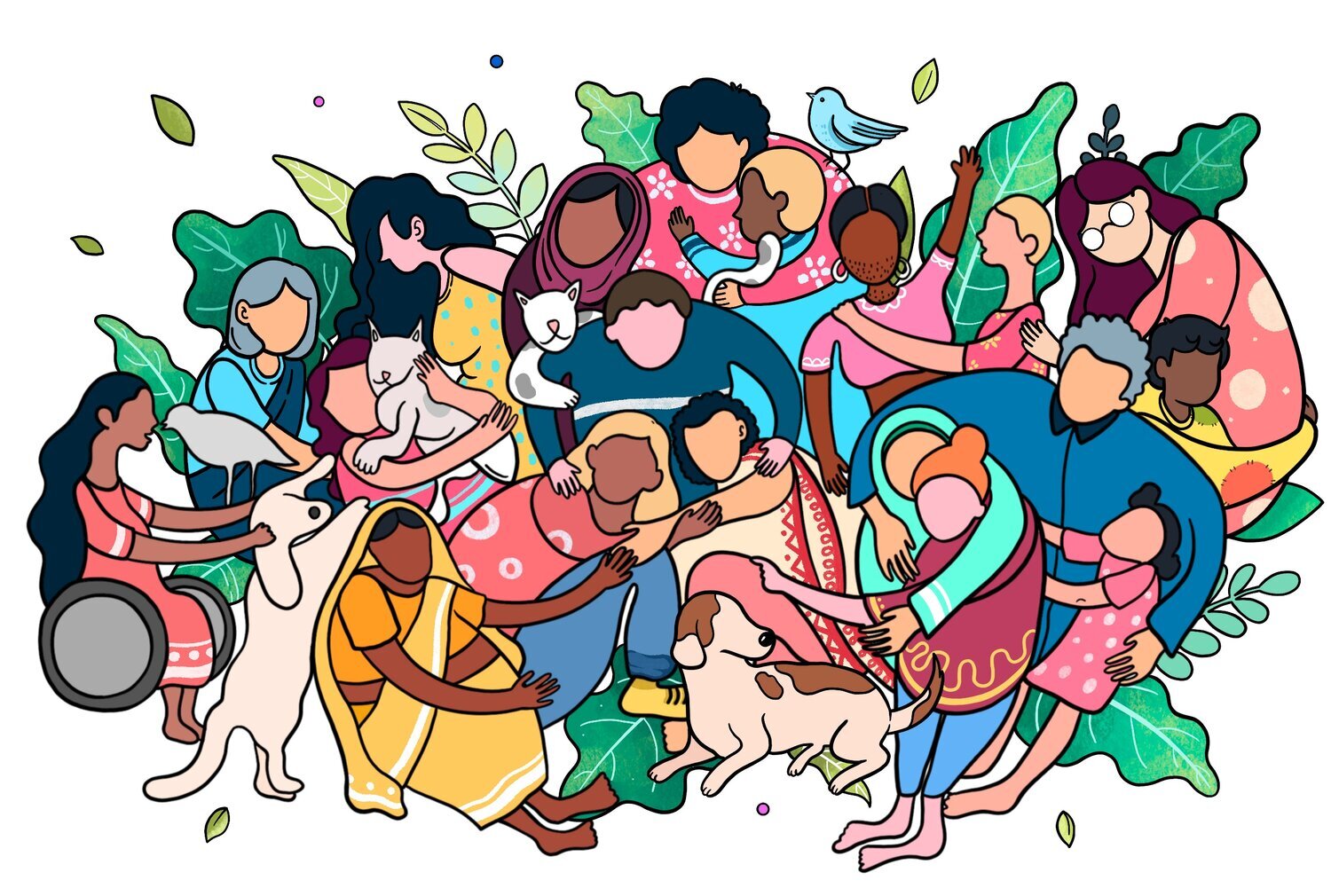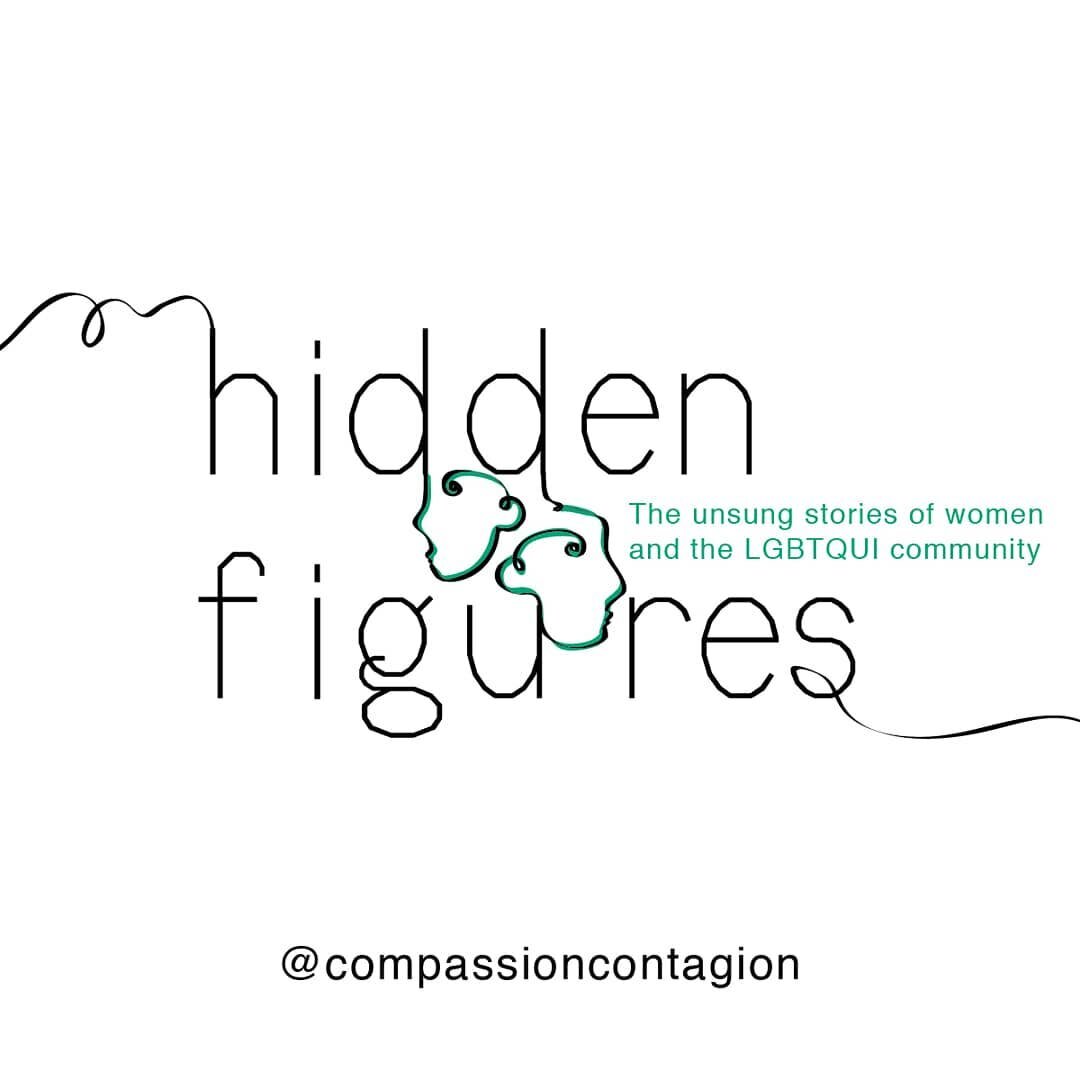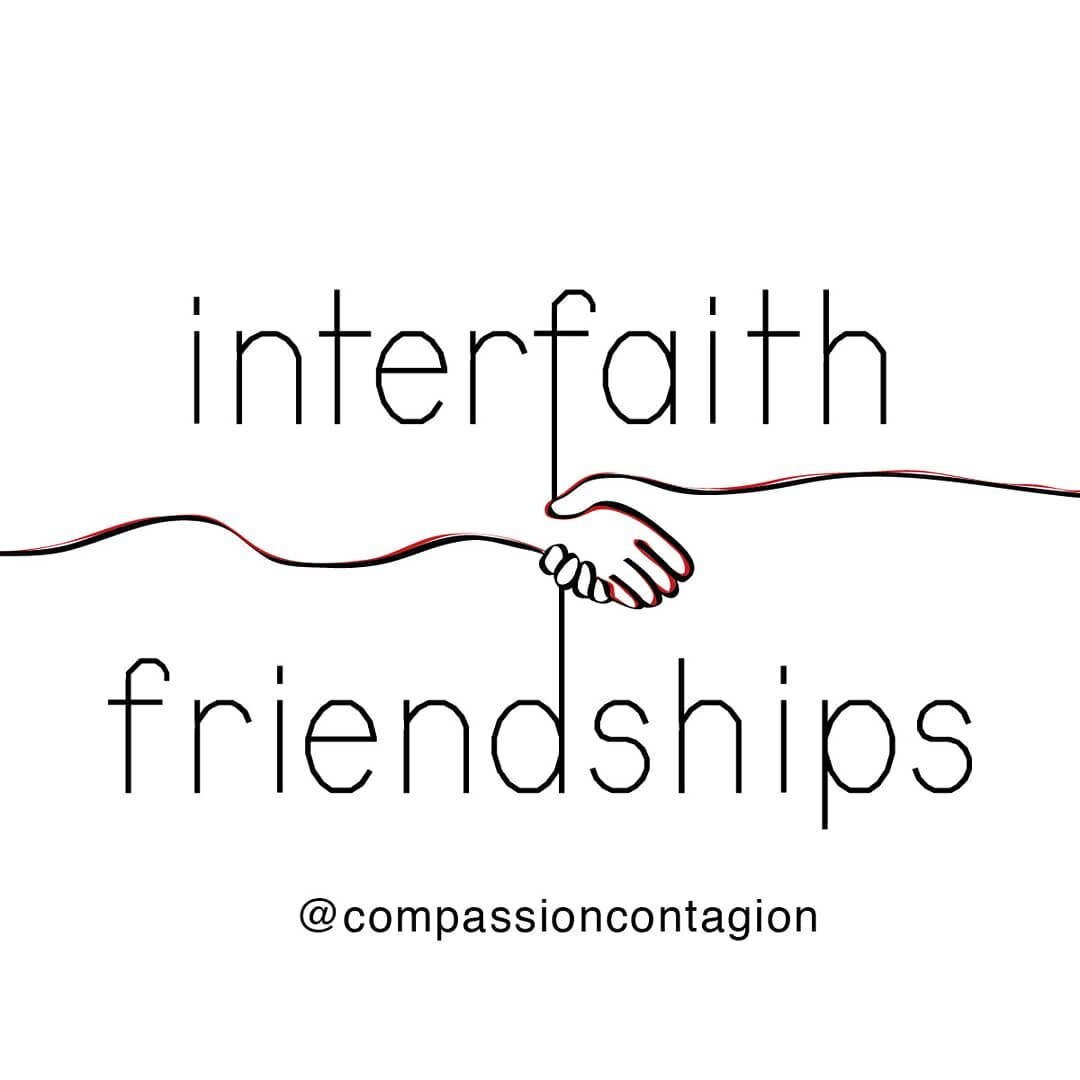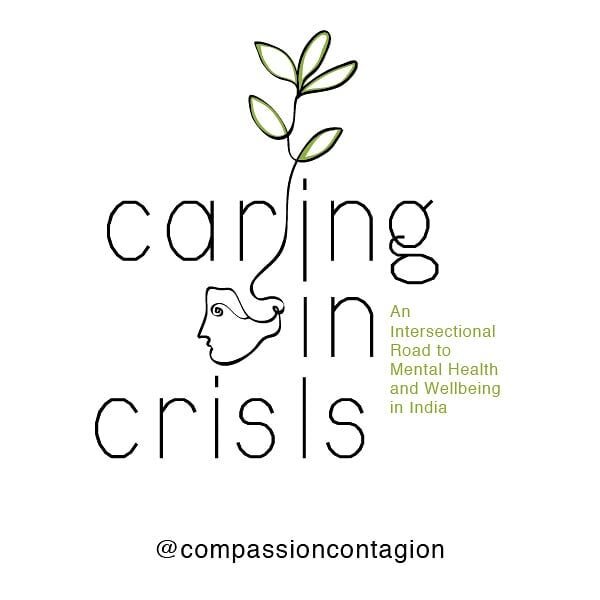compassion contagion - nida ansari & pooja dhingra, india
In its battle against Covid-19 India is witnessing a colossal humanitarian crisis. The lockdown has left thousands of people jobless and starving; many were forced to migrate back to the safety of their villages. In tackling the spread of Covid-19 the State has resorted to curbing citizen dissent and democratic voices; and deep rooted socio-political fissures of identity, religion and caste have surfaced once again. But in the midst of this 'slow death of democracy' we are witnessing the rise of ordinary active citizens across the country and their everyday acts of resilience and compassion. Interfaith dialogues through relief work, helplines to support migrants travel back home, fundraisers to support small vendors and businesses, a national network of animal feeders - this human perseverance, which is building solidarities between common people and activists, artists, students, community leaders, government representatives, health workers, lawyers, warrants representation, because history will remember this moment as a turning point for citizenship action.
Compassion Contagion seeks to document these acts of compassion and tell the story of how these experiences are fundamentally changing human behaviour, shifting the narrative from ‘despair’ to one of ‘hope’. What motivates ordinary people to go beyond the call of duty? Has the pandemic given rise to a new community of empaths?
As artists and activists, we aim to create an online archive of stories, interviews, photo essays, art, illustrations, collages and graphic narratives of solidarity, of connection in the time of social distancing, of lifting someone’s spirits up or helping someone grieve, of healing and being healed, of cooperation, courage, compassion and hope. These invaluable stories of compassion will be curated online along with a digital downloadable zine.
Nida Ansari is a development consultant, youth worker and writer. She has worked closely with people’s movements at the intersection of workers, students, farmer rights and recently in nation-wide community led protests against the National Register of Citizens and the Constitutional Amendment Act such as the Shaheen Bagh protest and relief work in the North-East Delhi pogrom.
Pooja Dhingra is an independent conceptualiser, graphic designer and an art director. She has worked on projects that address the issues of discrimination and social exclusion, campaigns designed to address early and child marriage, women’s nutrition, health and reproductive right of adolescent girls. Her work uses research and illustrations to communicate and simplify information. Her personal work revolves around waste management, sustainability, and addressing the patriarchy through humour and satire.
Illustration by @adira.andlay
A relief kit should do two things. It should provide assistance to those in need during a crisis to survive and should also relieve them from anxiety or stress.
While the government provided relief by giving 5 kg of wheat/rice per person and 1 kg chana (chickpeas) per family for a month; there were others who had put more thought and compassion into creating a kit - one that ensured survival and addressed the lost livelihood.
While we attempt to dissect the contents of a relief kit to search for compassion in it; we’ve also gone beyond to explore how relief work, if done consciously, could be a road to recovery and rehabilitation.
The Anatomy of a Relief Kit...Coming soon on Compassion Contagion
Illustration by @anushreeei
We, women, are like roots
and we have roots of our own too
We stand tall on these roots
And because of them, we have fought and silently marched ahead
They cut us from above
We expand and spread from below
We will continue to connect and unite with roots close to us
and will shake the foundations and structures of their oppression
A poem by @bhasinkamla
Being 74 years old and unable to step out of her house during the pandemic didn’t stop @bhasinkamla from conducting capacity-building workshops, training and empowering thousands of people through the virtual world and her own YouTube channel. She believes that as humans we have the capacity to change through the power of love, solidarity and friendships.
Kamla Bhasin is an Indian developmental feminist activist, poet, author and social scientist. She has been relentlessly working for more than four decades with issues related to gender, development, peace, human rights and democracy. She is the founding member and adviser for Sangat-a feminist network, which works as a platform for bringing together gender activists and trainers. She is also the South Asia coordinator for the One Billion Rising campaign.
More on her soon on 'We the People'- a series on some very inspiring people we interviewed for our project, Compassion Contagion.
Illustration by @anushreeei
Some insights from Uma Chatterjee on the plight and resilience of the survivors of trafficking during the pandemic.
Uma Chatterjee is a mental health professional engaged with human rights development work for almost 2 decades. She is the co-founder and director of @sanjogindia , a non-profit which works with development issues like access to justice, law & policy reforms, gender equity and survivors leadership in social transformation. In addition, she passionately partners a leadership development and change management firm called ChangeMantras which believes that the secret to meaningful change is to focus one's energy not only on fighting the old but also on building the new.
More on her soon on 'We the People'- a series on some very inspiring people we interviewed for our project, Compassion Contagion.
Illustration by @anushreeei
As a self-identified Chinki and non-binary person making their home in Delhi after leaving Manipur, @pavelsagolsem experienced the lockdown, through a lens most may not even be aware of. His work of creating queer-friendly spaces in civil society spaces, and their practice as a queer, feminist social worker has careened them towards a dedication to LGBTQUI issues, since 2010. He is the founder of the ‘Chinky Homo Project’.
"The pandemic reduced the spaces for the queer circles. People like me, my friends, fellow activists in queer circles- we have all been living multi-cultural lives, forging spaces and relationships in the fabric of Delhi wherein we could be ourselves. Spaces where we could congregate to connect through our lived experiences, and survive. These spaces vanished. The harsh realization that we are still not a part of the public fabric became clear to us. There was no space to escape, for the queer folks living with their families. This really did take us back to the loneliness we felt as children."
Pavel talks about the role race is playing today. "Blaming the nation of China for Covid started being used as an excuse to misbehave with, and discriminate against, people from North-East India. A fear exists in city-dwellers that migrants are coming to take their jobs. There is a widespread fear of transwomen, non-binary people and people from the NorthEast, in Malviya Nagar."
When discussing mutual aid in the time of the pandemic, Pavel says -- "In the second month of the pandemic, we decided to meet up safely and prepare food together. Many of us in Delhi love Manipuri food, and making it is such a process. Each gets a few ingredients, and it really is a community experience."
Simple acts of kindness can play the role of resilience.
"Cleaning, cooking and gardening as a community gives us the sense of nurturing something. During the pandemic, self-care became a collective experience and a new way of engaging with each other."
More on them soon on 'We the People'- a series on some very inspiring people we interviewed for our project, Compassion Contagion.
Illustration by @adira.andlay
Lessons in empathy from the streets during the pandemic
A team of young 'gully' boys and girls from the most marginalised areas in Delhi show us how the values of Rugby can be used to carry out relief work during a crisis and how sports, not the glamorous world of medals which the world binges on, but a simpler and more humble side, has the ability to build bridges and catalyse change within a community.
Coming soon on Compassion Contagion.
The story of Munni 'Razia' Begum - The Malala of Jaunpur (coming soon)
An extraordinary story of a woman who is on a mission to change her life and of others through the power of education. Her courage and perseverance continues to inspire and empower many women to lead at the grassroots. Absolutely nothing can derail this daredevil from her mission. Not even the pandemic.
We would like to thank @praxisindia for connecting us to this trailblazer.
A graphic narrative by @ladycameraman
Ankur Ahuja is a Delhi based illustrator and cinematographer who has been documenting Delhi through portraits of people on the streets. It has since become a chronicle of sociopolitical and cultural aspects of daily life. She has exhibited her work Tic-Tac-Toe at IIC, Delhi and has an upcoming group show at Serendipity Arts Festival (Virtual) 2020. She has been published as a writer and artist in the Graphic Anthology ‘This Side That Side: Restorying Partition’.
She also helped gestate Delhi Comic Arts Festival as the Production Manager of the festival that brings together artists working with graphic novelists around the world together under one roof for exhibitions, talks, and interactions.
Monika Sahu, devoted Cadre at Self-Help Groups (SHGs) and President of Gram Sangathan (village organization) organized by @wearepradan was once thought of as ‘a defective piece’ by her in-laws, due to her sickly constitution.
Born in Daspur and raised by her grandparents in Kondagaon, Chhattisgarh, Monika was educated until the eighth grade, and was married off at the age of 20. Fuelled by the tension at home, she became a member of the SHG and started dedicating her time to on-ground work looking after the needs of the village during the pandemic.
She talks about her life during the lockdown.
From our series #wethepeople
Illustration by @anushreeei
Illustrated by Anarya @sadak.chhaap.ladki
Sandhya Nair makes a case for compassion for mothers in Kamathipura, Mumbai-India’s 7th largest red light area in this graphic narrative. Sandhya Nair is the daughter of a sex worker. Born and raised in Asia’s most infamous red light area kamathipura, she is a beneficiary (Krantikari) of a Non-Profit organisation based in Mumbai called Kranti. Kranti empowers girls from Mumbai’s red light area and daughters of sex workers to be agents of social change and happiness. She is currently a second year undergraduate student majoring in psychology at Ashoka University.
Written by Sandhya Nair @Sandhya_1818
Anarya is an artist, illustrator and art educator based in Delhi. Her illustrations and visual narratives delve into themes of gender dynamics, pleasure and love, often through humour and sarcasm. Presently she is working at Artreach India, a non-profit organization working with children and women from marginalized communities.














